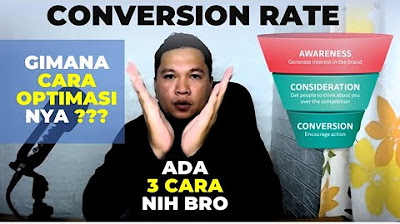1b Peranan Uang dalam Perekonomian
Summary
TLDRIn this comprehensive lecture, Prof. Dr. Anditra Ma discusses the critical role of money in the economy, exploring its influence on inflation, economic growth, interest rates, and business cycles. He explains how money facilitates transactions, drives investment, and affects overall economic activity. The professor also delves into the Islamic perspective, highlighting the ethical principles of using money, such as justice, fairness, and the prohibition of exploitative practices like usury. Emphasizing the balance of money supply, he underscores the need for responsible management in both conventional and Islamic finance systems to promote a healthy economy.
Takeaways
- 😀 The role of money in the economy is crucial for facilitating transactions, enabling exchanges of goods and services, and aiding in resource allocation.
- 😀 Money helps in making efficient economic decisions by providing a universal measure of value, making it easier for individuals and businesses to evaluate the resources they need.
- 😀 A rise in the money supply can lead to inflation, as it increases demand for goods and services beyond production capacity, pushing up prices.
- 😀 The right amount of money supply facilitates economic growth by ensuring liquidity for investment, consumption, and other economic activities.
- 😀 Excessive or insufficient money supply can affect interest rates. An oversupply leads to lower interest rates, while a shortage raises them.
- 😀 Money plays a key role in economic cycles. In expansion phases, a higher money supply supports growth, while in contraction phases, reduced money supply can slow down investments and economic growth.
- 😀 Classical and Keynesian economic theories argue that money is neutral in the long term but not in the short term, affecting variables like inflation and economic growth.
- 😀 The availability of banking credit has a direct impact on economic activity, and effective monetary policy transmission mechanisms are needed to influence the economy.
- 😀 Classical theories emphasize money as a medium of exchange and store of value, while modern theories consider money’s role in macroeconomic variables like inflation and interest rates.
- 😀 Globalization and financial technology innovations are challenging traditional monetary theories, requiring new approaches to understand global capital flows and financial markets.
- 😀 From an Islamic perspective, money is viewed as a tool for economic welfare, and its management should follow ethical principles like fairness, avoiding practices like usury (riba), gambling (maisir), and excessive uncertainty (gharar).
Q & A
What is the role of money in the economy?
-Money facilitates economic transactions, enables the exchange of goods and services, and helps allocate resources efficiently. It also aids in decision-making for individuals and businesses.
How does money affect inflation?
-If the money supply increases faster than the production of goods and services, demand exceeds supply, leading to higher prices and inflation.
What impact does the amount of money in circulation have on economic growth?
-Sufficient liquidity is essential for economic growth as it supports investment, consumption, and general economic activity. Both too much or too little money can hinder growth.
How does the supply of money influence interest rates?
-An excess of money can lower interest rates because financial institutions are willing to lend at lower rates to attract borrowers. Conversely, a shortage of money tends to raise interest rates.
What are the two phases of the economic cycle, and how does money affect them?
-The two phases are expansion and contraction. In expansion, an increased money supply supports economic growth and raises prices. In contraction, a reduced money supply can slow down investment, consumption, and growth.
What is the main difference between classical and Keynesian economic theories about money?
-Classical theory states that money is neutral in the long term, while Keynesian theory acknowledges money’s impact on economic variables in the short term, such as inflation and employment.
What is the role of credit availability in economic activity according to economic theory?
-The availability of credit influences economic activity by enabling businesses and individuals to borrow and invest, thus affecting overall economic growth and stability.
What does modern monetary theory say about money in the economy?
-Modern monetary theory recognizes the broader influence of money on macroeconomic variables like inflation, interest rates, and considers global factors such as financial markets and technological advancements.
How does money circulate within the economy and affect economic growth?
-Money circulates through the economy by enabling the exchange of goods and services. As money is spent and re-spent, it fuels production, investment, and consumption, driving economic growth.
What is the Islamic perspective on money in the economy?
-Islam views money as a means to achieve societal welfare and justice. It must be managed ethically, avoiding practices like usury (riba), gambling (maisir), and excessive speculation (gharar). Money should serve the common good and be used in accordance with moral and ethical principles.
Outlines

Dieser Bereich ist nur für Premium-Benutzer verfügbar. Bitte führen Sie ein Upgrade durch, um auf diesen Abschnitt zuzugreifen.
Upgrade durchführenMindmap

Dieser Bereich ist nur für Premium-Benutzer verfügbar. Bitte führen Sie ein Upgrade durch, um auf diesen Abschnitt zuzugreifen.
Upgrade durchführenKeywords

Dieser Bereich ist nur für Premium-Benutzer verfügbar. Bitte führen Sie ein Upgrade durch, um auf diesen Abschnitt zuzugreifen.
Upgrade durchführenHighlights

Dieser Bereich ist nur für Premium-Benutzer verfügbar. Bitte führen Sie ein Upgrade durch, um auf diesen Abschnitt zuzugreifen.
Upgrade durchführenTranscripts

Dieser Bereich ist nur für Premium-Benutzer verfügbar. Bitte führen Sie ein Upgrade durch, um auf diesen Abschnitt zuzugreifen.
Upgrade durchführenWeitere ähnliche Videos ansehen

1a Teori Dasar Uang

PROF RACHMAT KRIYANTONO (PROF RK); ISU, KRISIS DAN PUBLIC RELATIONS, STUDI KASUS ARLA

Pengantar Bela Negara Bagi Mahasiswa UI--Prof. Dr. Ir. Budi Susilo Soepandji, DEA

Teks Ceramah

Memahami Conversion, Cara Menghitungnya dan 3 Cara Meningkatkan Conversion Rate Digital Marketing

FUNÇÃO DO 1 GRAU | FUNÇÃO AFIM | \Prof. Gis/- AULA 1
5.0 / 5 (0 votes)
